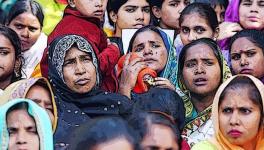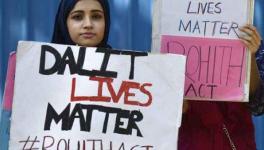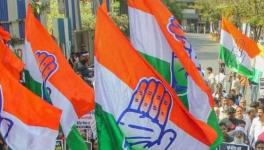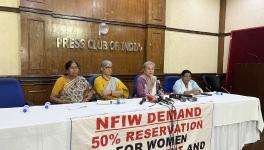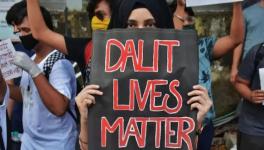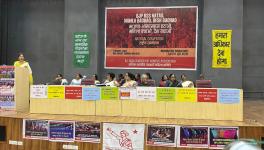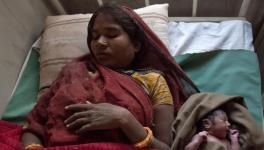'Shocking, Patriarchal Bias’: AIDWA Slams Court Verdict in Hathras Gangrape-Murder Case
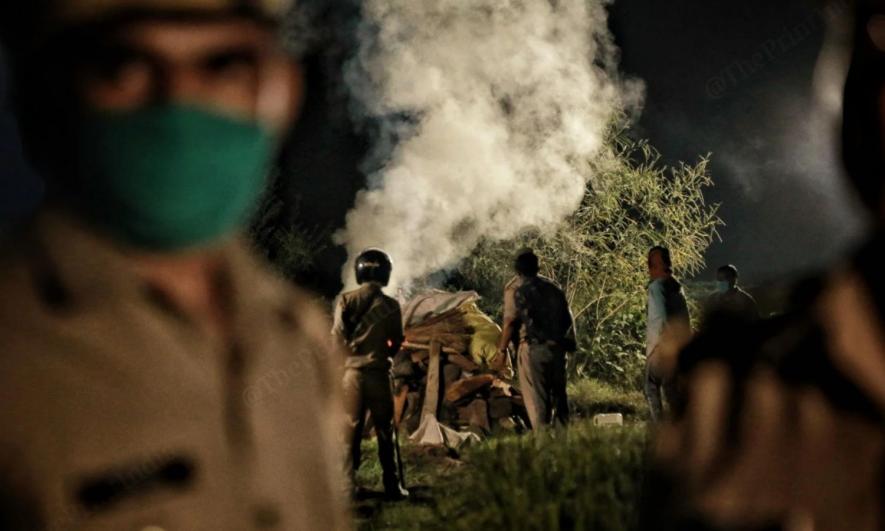
Image credit: Live Law
Delhi: The All India Democratic Women’s Association has slammed the court verdict acquiting the four accused of gangrape and murder charges in the Hathras case, in which a 19-year-old dalit woman died after alleged gangrape in Uttar Pradesh. The AIDWA called the judgement “shocking” and urged the Criminal Bureau of Investigation to appeal against the verdict immediately.
The Special Judge Trilok Singh Pal acquitted the four accused persons, upper caste Thakur men, involved in the Hathras gangrape and murder case. Only the main accused Sandeep (20) was convicted for culpable homicide not amounting to murder, and offences under the SC/ST Act. The others, Ravi (35), Luv Kush (23) and Ramu (26), were acquitted.
The victim was allegedly gang-raped and brutally assaulted on September 14, 2020 by the accused persons while working in the fields, and died a fortnight later in the hospital.
The AIDWA in its statement recounted that when the victim had succumbed to her injuries on September 29, the police hastily cremated her in the absence of the family. As the family claimed that their consent was not taken for the cremation, the police claimed otherwise. This sparked protests in the locality and several outraged citizens and organisations, including lawyers, approached the Supreme Court for the transfer of this case to the CBI. The Allahabad High Court also took suo moto cognisance and agreed to monitor the investigation under the CBI.
“The judgment which reeks of patriarchal and casteist bias acquits all the four upper caste men of gangrape and murder, and does not give any credence to even the dying declaration of the victim, and the brutal assault obviously suffered by her,” the AIDWA statement said on Saturday.
Since the case was reported, AIDWA and other organisations had accused the UP Police of acting in a biased manner and having “botched up the investigation from the beginning.” The statement cited instances of questionable police action such as when the victim named the accused right after the incident, the police did not include the charge of gangrape in the first FIR. The rape charges were only added after the victim regained consciousness and gave a formal statement to the magistrate. Following her statement, the police sent samples to the Forensic Science Laboratory (FSL), which received them on September 25–11 days after the attack. Based on this FSL report the UP Police claimed that the woman was not raped. Whereas experts reportedly said the FSL report held no value as much time had passed at the time of taking the sample.
The AIDWA also mentioned that the victim’s mother, who had found her, distinctly stated that blood was rushing from her genitals.
“The DGP of Uttar Pradesh had also with an obvious bias pronounced that no rape had taken place on the basis of the meaningless forensic test. In Hathras, the upper caste Thakurs mounted an attack on the girl’s family claiming that no crime had been committed, and the family had to be provided security by the CRPF,” AIDWA said.
Further commenting on the verdict that held that the victim’s statement was not reliable, the Left-affiliated women’s organistaion said, “The girl’s statement to the Aligarh Magistrate on September 22 amounted to a dying declaration. Even earlier on September 14, the victim had stated on video that the accused had done ‘zabardasti’ with her. The 22 September statement, which is a dying declaration statement has been established to be conclusive evidence for rape trials in India.”
The statement mentioned that the Special Judge held that because the victim had not named all the accused in the statement to a female Police Constable five days after the incident, her statement given just before her death or after the incident or that of her mother could not be relied upon, and also the victim could have been tutored to change her statement to allege gangrape by four persons. The Judge also held that the offence did not amount to murder as there was no intention to kill the girl, it said.
In this regard, AIDWA commented that “the Supreme Court has highlighted the importance of the dying declaration in several cases and stated that the dying declaration can form the sole basis of the conviction.”
It further said that the court concluding that the accused Sandeep and others had no intention to murder the victim as she was conscious after the incident was also “wrong”. “In the Nirbhaya case, in similar circumstances, the Courts held that murder was proved. In any case, the accused should be deemed to have known the consequences of their brutal attack on the victim,” Aidwa said.
Meanwhile, the victim’s family has said they will continue their fight for justice. "Our struggle to get justice for my sister has not yielded any results. We are yet to get justice, will continue our fight for it," a brother of the victim told the media on Friday.
Get the latest reports & analysis with people's perspective on Protests, movements & deep analytical videos, discussions of the current affairs in your Telegram app. Subscribe to NewsClick's Telegram channel & get Real-Time updates on stories, as they get published on our website.









